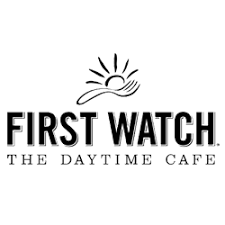First Watch Franchise in 2025: Costs, Fee & FDD
Discover the investment potential of First Watch, a leading daytime dining franchise with over 450 locations, known for its fresh, high-quality breakfast and brunch offerings. Learn about costs, support systems, and why it stands out in the market.
Table of Contents:
First Watch, founded in 1983 by Ken Pendery and John Sullivan, has established itself as a leading daytime dining concept serving breakfast, brunch, and lunch. The founders’ vision was to create a unique dining experience that offered fresh, high-quality food and exceptional service. Over the years, First Watch has grown from a single location in Pacific Grove, California, into a beloved national chain, known for its commitment to fresh, made-to-order dishes and a welcoming, community-centric atmosphere.
At the heart of First Watch’s menu are its signature breakfast and brunch offerings, including freshly squeezed juices, artisan bread, and farm-fresh ingredients. Popular dishes include the Avocado Toast, Million Dollar Bacon, and Lemon Ricotta Pancakes. Besides the core breakfast and brunch items, First Watch also offers a selection of lunch options like salads, sandwiches, and soups, catering to a diverse clientele. The primary market for First Watch includes families, professionals, and brunch enthusiasts who appreciate quality, health-conscious meals served in a comfortable and friendly environment.
First Watch has significantly expanded its footprint, boasting over 450 locations across the United States, including franchise owned restaurants and company owned restaurants. The brand continues to grow, with new restaurants opening regularly to meet the increasing demand for high-quality daytime dining. The system wide restaurant base serves a robust daily customer base, with each location welcoming hundreds of guests every day. This widespread popularity underscores the brand’s ability to maintain consistent quality and service across its numerous locations, making it a reliable choice for potential franchisees.
Existing restaurants within the First Watch network have set a strong precedent for success, particularly in strategic areas such as franchise restaurants in North America. First Watch offers an extensive support system for its franchisees, ensuring that new owners are well-prepared to run successful operations. The franchise provides comprehensive training programs that cover everything from kitchen operations and food safety to customer service and business management. Additionally, ongoing support includes marketing assistance, operational guidance, and access to a network of experienced franchisees. These resources are designed to help new owners navigate the challenges of the restaurant industry and support business growth, while adhering to advertising and consumer protection regulations as well as federal and state laws. With a strong emphasis on quality and consistency, First Watch is a promising option for anyone looking to invest in a reputable and growing brand. The franchise’s previously experienced performance has been highlighted in nation’s restaurant news, further solidifying its position in the market.
First Watch Franchise Insights
- First Watch has consistently ranked among the top in customer satisfaction, with over 95% of customers rating their dining experience as excellent.
- First Watch’s commitment to fresh, never-frozen ingredients means that 100% of their breakfast sausages and bacon are nitrate-free.
- The franchise boasts a low employee turnover rate, with many staff members staying with the company for over five years, reflecting a strong internal culture.
- Each First Watch location serves an average of 500 customers daily, emphasizing its popularity and consistent foot traffic.
- First Watch has been recognized as one of Forbes’ Best Mid-Size Employers, highlighting its strong reputation as both a business and a workplace.
First Watch Franchise Key indicators
Growth YOY (%)
1%
vs industry -1%
Total U.S. Franchised Units
108
Total U.S. Corporate Units
366
3-Year Failure Rate
3%
vs industry 11%
How much does it cost to open a First Watch franchise?
Understanding the potential investment size and capital requirements is crucial when considering opening a First Watch franchise. These financial commitments, including initial franchise fees, equipment costs, and ongoing operational expenses, impact the feasibility and profitability of the venture. Thoroughly evaluating these factors ensures that potential franchisees are prepared for the financial responsibilities and can make informed decisions about their ability to sustain and grow the business, ultimately contributing to long-term success.
Min & Max Investment
Opening a First Watch franchise involves several key costs, which are outlined in Item 7 of the Franchise Disclosure Document (FDD). You can see a breakdown of the costs to open a First Watch below from the most recent Item 7 below:
| Type of Expenditure | Minimum Investment | Maximum Investment |
|---|---|---|
| Initial Franchise Fee | $40,000 | $40,000 |
| Leasehold Improvements | $575,000 | $950,000 |
| Leasehold Expense (3 months) | $30,000 | $30,000 |
| Furniture, Fixtures, and Equipment | $375,000 | $460,000 |
| Initial Inventory (Food, Paper, Beverages) | $7,000 | $12,000 |
| Small Wares | $40,000 | $62,000 |
| Point of Sale Computer Hardware and Software | $50,000 | $72,000 |
| Travel and Living Expenses During Training | $1,000 | $20,000 |
| Initial Training Fee | $0 | $15,000 |
| Opening Crew Costs | $5,000 | $25,000 |
| CAFE Training Kit | $150 | $300 |
| Business Permits | $7,000 | $12,000 |
| Insurance deposits and Premiums (for first year) | $2,000 | $12,500 |
| Architect Fees | $20,000 | $28,000 |
| Utility Deposits | $0 | $10,000 |
| Grand Opening Advertising and Promotion | $5,000 | $35,000 |
| Liquor Licensing | $8,000 | $80,000 |
| Signage and Graphics | $15,000 | $65,000 |
| Additional Funds (3 months) | $30,000 | $100,000 |
| TOTAL | $1,210,150 | $2,028,800 |
Item 7 in the Franchise Disclosure Document (FDD) is the “Estimated Initial Investment” section. It outlines the total costs a franchisee can expect to incur when starting a franchise, including the initial franchise fee, equipment, inventory, real estate, and other startup expenses. This section is crucial because it provides potential franchisees with a detailed understanding of the financial commitment required, helping them assess affordability and plan their investment strategy effectively.
Required Capital
To open a First Watch franchise, here are the estimated financial requirements:
- Initial Capital Investment Typically ranges from $1,210,000 to $2,028,000, covering costs like construction, equipment, and initial inventory. Assuming that you will finance your franchise investment, you should plan to have 20% of the total investment amount in the form of equity (cash) for the investment.
- Liquid Assets You should have at least $200,000 in liquid assets to cover initial operating expenses and other immediate costs.
- Net Worth A net worth of at least $1,500,000 is generally recommended to ensure financial stability and the ability to secure financing if needed.
These figures are based on industry standards and estimates for similar full-service restaurant franchises, as specific figures for First Watch may vary.
How much does a First Watch franchise owner make?
Calculating the salary of a First Watch franchise owner involves analyzing gross sales to determine total revenue, assessing operational efficiency to understand profit margins, and accounting for franchisor fees and additional expenses such as rent, utilities, and payroll. Effective management of these factors can significantly impact the profitability and financial success of a First Watch franchise owner. This comprehensive financial analysis helps estimate net profits, from which the owner’s salary can be derived. A clear understanding of these factors ensures accurate salary projections and financial planning for sustainable business operations.
First Watch Revenue & Gross Sales
Based on our most recent research and analysis, First Watch franchises have an average gross sales of $1,726,000. This strong financial performance underscores the brand’s robust consumer demand and potential for significant revenue generation.
Which key factors impact the average revenue performance of First Watch franchisees?
The performance of U.S. First Watch franchisee average gross sales revenue from 2023 to 2024 was likely influenced by several key factors. A significant contributor is the brand’s continued emphasis on fresh, high-quality ingredients, which aligns with consumer preferences for healthier dining options. Additionally, First Watch’s strategic location selection in high-traffic areas and its robust marketing campaigns have driven increased customer footfall. The introduction of seasonal menu items and innovative dishes has kept the brand appealing to returning customers. Moreover, the enhanced customer experience through efficient service and a welcoming atmosphere has bolstered repeat visits and word-of-mouth referrals, further driving sales performance.
First Watch Franchise Operational Costs
When opening a First Watch franchise, the key primary ongoing operational costs to consider include:
- Labor Costs Salaries, wages, and benefits for staff, which can account for a significant portion of operating expenses.
- Food and Beverage Costs Regular expenses for fresh ingredients, beverages, and other consumables required to maintain menu quality.
- Rent and Utilities Lease payments for the restaurant space, along with utility bills such as electricity, water, gas, and internet.
- Marketing and Advertising Ongoing costs for local marketing campaigns, promotions, and digital advertising to attract and retain customers.
- Maintenance and Repairs Costs associated with maintaining kitchen equipment, dining area furnishings, and other infrastructure.
- Insurance Premiums for property, liability, and employee insurance to protect the business from various risks.
- Supplies and Inventory Regular replenishment of non-food items like cleaning supplies, paper products, and other operational necessities.
- Technology and POS Systems Expenses related to maintaining point-of-sale systems, software licenses, and other technology infrastructure.
- Professional Services Fees for accounting, legal, and other professional services necessary for business compliance and financial management.
In addition to these operational costs, there are franchise related fees that a franchisee should plan for.
First Watch Franchise Fees
Owning a First Watch franchise is different from owning an independent, non-franchised business. All franchises tend to charge ongoing fees that franchisees are required to pay to operate. First Watch requires their franchisees to pay the below fees:
- Royalty Fee This is a monthly fee paid to First Watch corporate, typically calculated as a percentage of gross sales. For First Watch, this fee is 4% of the restaurant’s monthly gross sales.
- System Fund Contributions 1.5% of gross sales, though can be raised up to 3% of gross sales
- Cooperative Advertising Fees 2% of gross sales
- Additional Fees There are additional fees for training programs, technology, and other items provided by First Watch that may be applied
These ongoing fees are essential to consider when planning the financial aspects of owning and operating a First Watch franchise. They cover the costs of brand support, advertising, and ongoing operational assistance provided by First Watch.
First Watch Franchise Earnings
The earnings of a First Watch franchise owner can vary significantly based on a variety of factors including location, sales volume, operational efficiency, and cost management. However, on average, First Watch franchise owners can earn a significant income.
First Watch franchisees have an average gross sales of $1,726,000. Based off of the average gross sales, we can estimate a First Watch franchisee makes $172,000 in estimated earnings (EBITDA) per year, assuming that the franchisee is an owner-operator in the location. This means that you can consider the salary of a First Watch franchise owner to be roughly $172,000 before interest, taxes, depreciation, and amortization (EBITDA).
If the franchisee is semi-absentee, then earnings will be significantly lower based off of the costs of having a hired manager.
How to Open a First Watch Franchise
Becoming a First Watch franchisee is a rigorous process that involves financial scrutiny, extensive training, and thorough evaluation. However, it offers the potential for a lucrative business opportunity backed by a globally recognized brand and comprehensive support system.
The full process for how to open a First Watch franchise is outlined below:
- Contact Franchisor You or your franchise specialist submits an initial inquiry basic information about your interest and background. You should also conduct thorough research on the franchise, including seeing all of the information available on the Vetted Biz franchise intelligence platform, including access to the most recent Franchise Disclosure Document (FDD).
- Preliminary Information Complete an inquiry form providing basic information about your background, finances, and interest in the franchise.
- Submit Application Fill out a detailed franchise application form, including financial statements, resume, and personal information.
- Initial Screening The franchisor reviews your application to ensure you meet the financial and experiential requirements.
- Franchise Disclosure Document (FDD) Receive the FDD, which contains detailed information about the franchise, including costs, obligations, and franchisor responsibilities.
- Interview Process Participate in interviews with the franchisor’s development team to assess your suitability and commitment.
- Financial Review The franchisor conducts a thorough review of your financial status to confirm you have the necessary capital and net worth.
- Background Check Undergo a background check to verify your credentials and ensure there are no disqualifying factors.
- Attend Discovery Day Visit the First Watch headquarters and meet key personnel. This day provides a deeper insight into the company culture, operations, and support system.
- Final Approval If both parties are satisfied, you receive final approval to become a franchisee.
- Review Agreement Carefully review the franchise agreement, ideally with the assistance of a legal advisor.
- Sign Agreement Sign the franchise agreement and pay the initial franchise fee.
- Site Selection Work with the franchisor’s real estate team to select a suitable location.
- Lease Negotiation Negotiate lease terms and secure the location for your restaurant.
- Design and Construction Follow the franchisor’s guidelines for designing and building out the restaurant, including interior layout, signage, and equipment installation.
- Initial Training Participate in a comprehensive training program covering all aspects of the business, from kitchen operations to customer service and management.
- On-Site Training Receive additional on-site training and support as you prepare to open your restaurant.
- Staff Hiring and Training Recruit and train your staff with assistance from the franchisor’s support team.
- Marketing Campaign Implement a local marketing strategy to build awareness and attract customers for your grand opening.
- Soft Opening Conduct a soft opening to test operations and make any necessary adjustments.
- Grand Opening Officially open your First Watch restaurant to the public, with support from the franchisor to ensure a successful launch.
- Operational Support Continue to receive operational support, marketing assistance, and regular updates from the franchisor.
- Continuous Improvement Participate in ongoing training and development programs to maintain high standards and grow your business.
Pros & Cons
Pros
Established Brand: First Watch has a strong reputation and brand recognition in the daytime dining sector, which can attract a steady customer base.
Growing Market: The demand for healthy, fresh, and quality breakfast and brunch options is increasing, positioning First Watch well in a growing market.
Proven Business Model: With a track record of profitability and consistent growth, First Watch offers a reliable business model.
High Customer Satisfaction: The brand’s focus on quality ingredients and exceptional service leads to high customer satisfaction and repeat business.
Innovative Menu: Seasonal and innovative menu items keep the offering fresh and appealing to regular customers.
Cons
High Initial Investment: The startup costs can be significant, ranging from $1,210,000 to $2,028,000, which may be a barrier for some investors.
Competitive Market: The restaurant industry is highly competitive, and maintaining a unique position can be challenging.
Operational Demands: Running a restaurant requires significant time, effort, and management skills, which can be demanding for new franchisees.
Location Sensitivity: Success can be highly dependent on choosing the right location, which can involve additional costs and strategic considerations.
Economic Sensitivity: The restaurant industry can be vulnerable to economic downturns, affecting customer spending and overall profitability.





